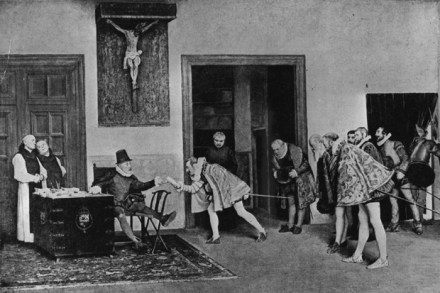In the empire stakes, the Anglo-Saxons were for long Spain’s inferiors
‘Every schoolboy knows who imprisoned Montezuma and who strangled Atahualpa.’ Macaulay, anticipating Gove, was complaining that the schoolboys by contrast did not get enough about Clive and the British conquest of India. Hugh Thomas, in this and in the two previous volumes of his trilogy on the Spanish empire, presumes that we have all forgotten about Montezuma and Atahualpa, and argues that we do not appreciate Spain’s imperial achievements. He is probably right, and he sets one off to speculate why. Take Philip II himself. He was musical, owning ‘ten clavicords, thirteen vihuelas, and sixteen bagpipes’. He had a library of 14,000 books, which we would consider more to his




















